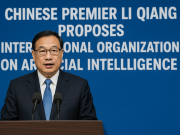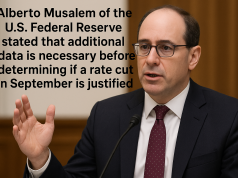Australia’s superannuation sector has expressed relief after the Trump administration reversed course on a proposed “revenge” tax targeting foreign investors — a move that could have jeopardized hundreds of billions of dollars in Australian retirement savings.
U.S. Treasury Secretary Scott Bessent confirmed he had reached an agreement with several countries working to tighten multinational tax rules, saying the deal would “defend American interests.” The previous Biden administration had supported a global tax framework, endorsed by 140 countries, requiring multinational corporations to pay at least 15% tax regardless of where they are headquartered.
However, on his first day back in office, President Donald Trump withdrew the U.S. from the agreement and warned of potential retaliatory measures, including duties against countries enforcing the global minimum tax.
Following negotiations, Bessent announced on social media that G7 nations had reached a mutual understanding: “OECD Pillar 2 taxes will not apply to U.S. companies, and we will work cooperatively to implement this agreement across the OECD-G20 Inclusive Framework in coming weeks and months.”
He also stated he had requested the removal of Section 899 — a proposed protective tax measure — from the forthcoming “One, Big, Beautiful Bill.”
The Australian superannuation industry had warned that, without a resolution, nearly US$450 billion in super fund investments in the U.S. could have been adversely affected. The Association of Superannuation Funds of Australia (ASFA) welcomed the news as a positive step.
“This is a very welcome move from the U.S. Treasury,” said James Koval, ASFA’s chief policy officer. “There’s still work to be done — lawmakers need to make the necessary changes. But this section of legislation would have significantly altered the risk-return profile of investing in the U.S., which would have been detrimental for everyone involved.”
The U.S. remains the largest overseas market for Australian super funds, with investments spanning infrastructure, equities, bonds, and more.
Prime Minister Anthony Albanese also responded positively to the update, noting he had personally raised Australia’s concerns with Bessent during last week’s G7 Summit in Canada.
“This would have had a negative impact on Australian investments, especially from superannuation funds,” Albanese said. “Earlier this year, we held a roundtable in Washington D.C. with Australian investment funds keen to back U.S. opportunities — just one example of the importance of the Australia-U.S. economic relationship.”
























